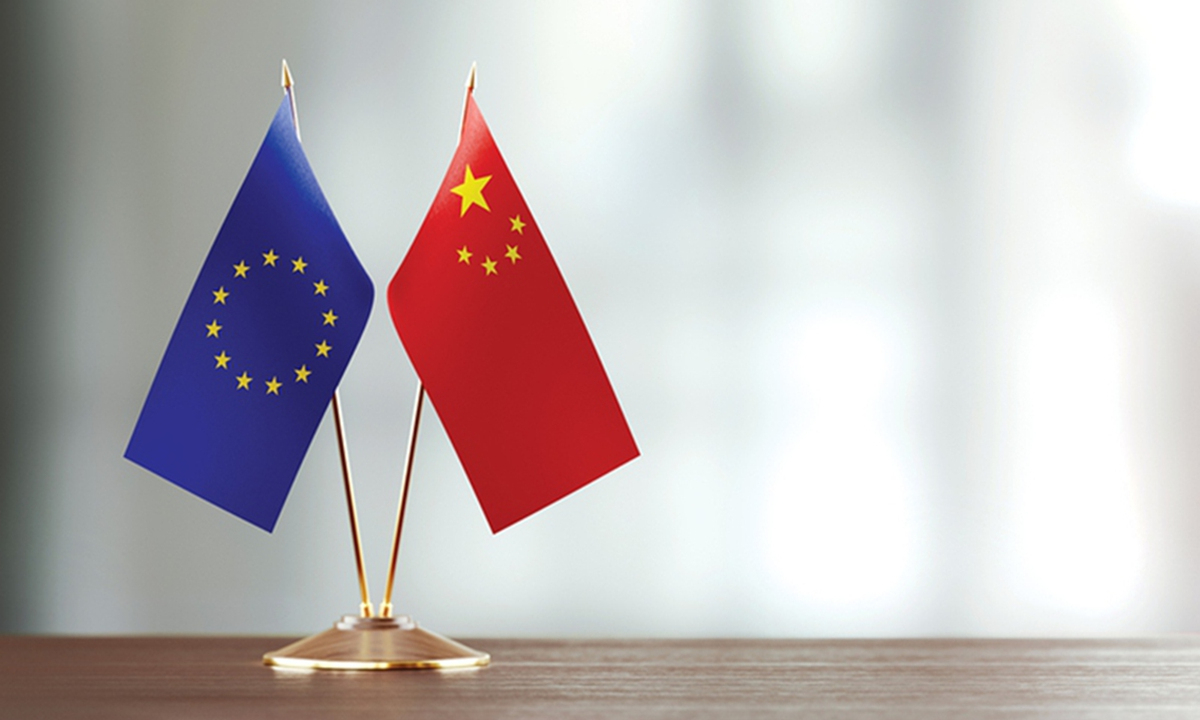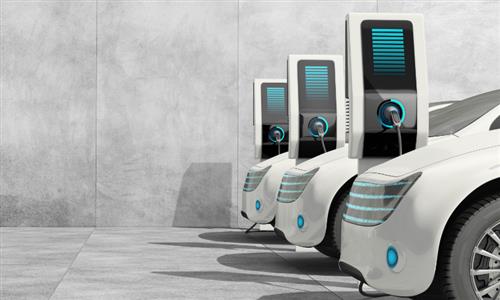EU defining China as ‘partner, competitor and systemic rival’ should be set aside: Chinese diplomat on European affairs

China EU Photo: VCG
EU defining China as partner, competitor, and systemic rival at the same time not only confuses China but also leaves European politicians, business and public bewildered and uncertain, which should be set aside, China's special representative on European Affairs said on Thursday.China and Europe are two major forces, two major markets, and two major civilizations in a multipolar world, with global influence, Wu Hongbo, Special Representative of the Chinese Government on European Affairs, said at the 9th China and Globalization Forum on Thursday held by the Beijing-based think tank the Center for China and Globalization.
Both sides support multilateralism, uphold the central role of the United Nations, and actively promote economic globalization and the improvement of global governance, Wu said. "We have no fundamental conflict of interest or geopolitical contradictions between the two sides. Our cooperation outweighs competition, and our consensus exceeds differences."
However, China, as a comprehensive strategic partner to the EU, was labeled with "three hats"-- partner, competitor, and systemic rival. This is akin to a green, yellow, and red traffic light. In daily life, if all three lights light up simultaneously, I believe no driver would dare to move forward, Wu said.
Similarly, if the "three-positioning" traffic lights light up at the same time in China-EU cooperation, it not only confuses China but also leaves European politicians, the business community, and the public confused and uncertain, the Chinese diplomat said.
Complicating a simple relationship and creating problems is easy, and many politicians are well-versed in this. However, simplifying a complex relationship and solving problems is no simple task, but that is precisely what both sides genuinely need, he noted.
Although the COVID-19 pandemic over the past three years has created difficulties, leading face-to-face communication to fall off, happily, our engagement has restarted, Wu said. Since last year, the EU, Germany, Spain, France and other countries' leaders have visited China, and our Premier Li Qiang also visited Germany and France. Many European foreign ministers and deputy foreign ministers are visiting China, Wu said.
At the sub-ministerial level, 200 sub-ministerial-level delegations from China visited Europe in the first seven months of 2023, and I personally visited Europe three times this year for important international seminars, he added.
Meanwhile, the trade between China and the EU reached $847.3 billion in 2022. In the first five months of this year, bilateral trade increased by 3.6 percent, the Chinese diplomat said. The global economic recovery and green transformation will bring new opportunities and inject new impetus into economic and trade cooperation. And we are also seeing more person to person exchanges, including corporate partnerships, which have enhanced bilateral mutual understanding and promoted practical cooperation, he said.
"I am personally very optimistic about the future of China-EU relations. When we discuss progress and achievement, we cannot forget the challenge, which are two sides of the coin," Wu said.
Despite that the China-EU high-level engagement continued, the EU has been repeating its "de-risk" narrative recently with China in the latest push which Chinese observers said results from the EU's ideologically biased policy against China. This time EU's eyes are fixated on lithium-ion batteries and fuel cells, where China has an edge in global markets thanks to its competitive industrial chain over years of building-out.
European Commission President Ursula von der Leyen also recently announced an anti-subsidy investigation into Chinese electric vehicles, which has even sparked strong reactions within the EU.
Economic globalization requires the active participation of China, Europe, and other countries. Similarly, the benefits of economic globalization should benefit all participants, Wu said. However, it's regrettable that the broad interpretations of "national security" and "risk" are leading to the "fragmentation" of the global economy and the severance of international industrial and supply chains, he said. "In essence, this is a move away from cooperation, stability, and development, which ultimately harms oneself."
De-risking, which is used to be referred to as "decoupling," is a very unappealing term, Wu said. In the past few months, the reality is that the EU, besides reducing the dependence of China, such as in manufacturing chain production chain, and gradually decreasing in the field of key ore, also came up with a lot of rules and conditions to limit Chinese investment in Europe, and introduced some rules to limit European companies' investment in China, he noted.
Based on my knowledge, Chinese investment in the EU fell by 20 percent in the first half of 2021, the lowest ever, Wu said.
The Chinese diplomat called on both sides to fully set aside this peculiar "three-positioning" traffic light approach, and to enhance mutual trust and strengthen communication and collaboration in global governance.
The two sides should uphold the right direction of economic globalization, firmly support the multilateral trade system with the WTO at its core, oppose the instrumentalization, politicization, and broad interpretation of security in economic and trade issues, and jointly maintain an environment of open cooperation and the stable and smooth flow of global industrial and supply chains, Wu suggested.
China and EU should also enhance coordination of major policies, safeguard the security of the international economic and financial system, inject more stability and positive energy into a tumultuous world, and promote an early recovery of the global economy, he continued.
And the two sides need to promote green, low-carbon development, provide robust support for developing countries in addressing climate change, ensure positive outcomes at this year's COP28 conference, and contribute to low-carbon economic transformation and global sustainable development.
China and EU also need to practice genuine multilateralism, adhere to the purposes and principles of the United Nations Charter, uphold the international system centered on the United Nations and the international order based on international law, and advance the development and perfection of the global governance system.
"I believe that as long as we cast off the shackles of ideology, step out of the pitfalls of 'political correctness,' replace division with unity, confrontation with cooperation, and exclusion with inclusivity, China and Europe can better prevent and mitigate risks and promote global economic development," Wu said.
The Chinese diplomat said he sincerely hopes that the EU and its member states will become the owners of their own "house." The EU should make their own decisions, rather than by another country across the big ocean, referring to the US .


